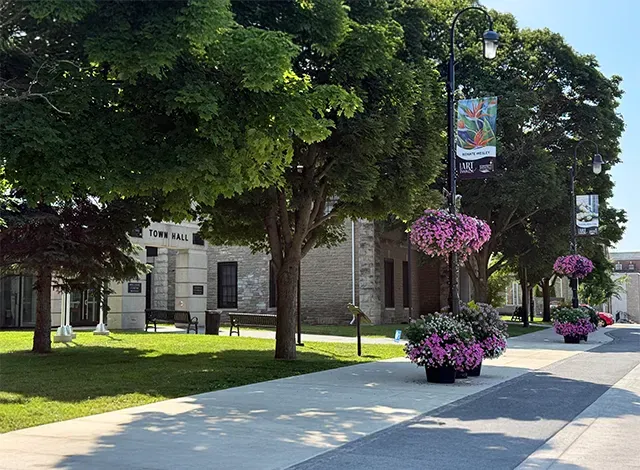Staff looks to adjust rates for 2026 municipal election
LAURIE WEIR
SMITHS FALLS — Smiths Falls council members are paid well below the provincial average, and and they say it’s time that changed.
At its July 14 meeting, council received a comprehensive remuneration report that compared local salaries, per diems and benefits with those in other Ontario municipalities. The takeaway: Smiths Falls councillors and the mayor earn 14 to 15 per cent less than the average.
Mayor Shawn Pankow’s salary is listed at $37,743, nearly $6,800 under the average of $44,521. Councillors earn $19,000, compared to an average of $22,074. Per diems for full-day meetings trail by $15.78, while half-day rates fall short by $14.06. Only mileage rates were slightly above average at 66 cents per kilometre.
Director of Corporate Services and Treasurer Paul Dowber presented the findings, noting that the data came from 15 municipalities.
“The big highlights from it are that, as you can see in the charts, the mayor’s salary is under by just about $6,800, while councillors are both below the average by 14 per cent,” Dowber told council. “We also looked at what some of the benefits were that councils receive in other municipalities… and it was very sporadic.”
Seven municipalities surveyed offer health and dental benefits to council members. Seven also contribute to OMERS pension plans, but the two groups are not the same.
Coun. Steve Robinson thanked staff for the work, calling it long overdue.
“The job has changed over the years,” he said. “There’s more responsibility, more time involved, and expectations have definitely grown. If we don’t keep up with that, we risk making it harder for good people to put their names forward, especially with the cost of living what it is today.”
McGuire said he supports increased compensation and the introduction of health and dental coverage.
“I don’t think we necessarily need a pension plan for council, but health and dental could go a long way. It could make a real difference, especially for people who don’t have those benefits through other work.”
Coun. Chris McGuire.
“I don’t get to say this very often,” he said with a laugh. “But I agree with everything Coun. Robinson said.”
McGuire noted that pension participation might be a bigger draw for younger candidates looking for long-term career development.
“If we want diverse voices at the table, that could be an incentive. It might not appeal to someone who’s retired, but it could be a factor for someone deciding to run.”
He also raised concerns about the municipalities used in the survey.
“I think we should stick our comparators to urbanized municipalities, or at least municipalities that have an urban area over 6,000 people. Some of the comparators don’t meet often, and their workload is very different.”
Coun. Jay Brennan asked when the last adjustment to council pay was made.
“I think it was the first term,” Dowber said. “So, between 2010 and 2014.”
“That’s 15 years ago,” Brennan said. “It’s hard to say you’re giving yourself a raise, but let’s be honest, we’re not here for the money.”
Brennan said he was in favour of adjusting salaries, despite the optics of giving himself a raise.
McKenna confirmed that any changes would take effect after the next election. “Whoever wins the next election would benefit, not us,” he said. “We’re not going to benefit from this decision.”
Coun. Jennifer Miller said the changes are about creating an inclusive environment.
“If we want more women and people from minority populations in politics, we have to remove barriers,” she said. “We want to make sure there is enough money to cover child care costs, transportation and other barriers that sometimes see these groups left out. It’s not a lot of money but it is a gesture as we approach the election and try to ensure that we have great candidates for our community.”
Mayor Pankow echoed the need for an updated review, noting that traditionally, this has been an environment for people who are retired or self-employed. Unless you have that flexibility, it’s limited.
Council supported a request to have staff return with refined comparators focused on urban, single-tier municipalities, and to cost out health, dental and pension options, along with a review of per diems for public appointees and committee work.
Any increase would not take effect until the next term of council, after the 2026 municipal election.






